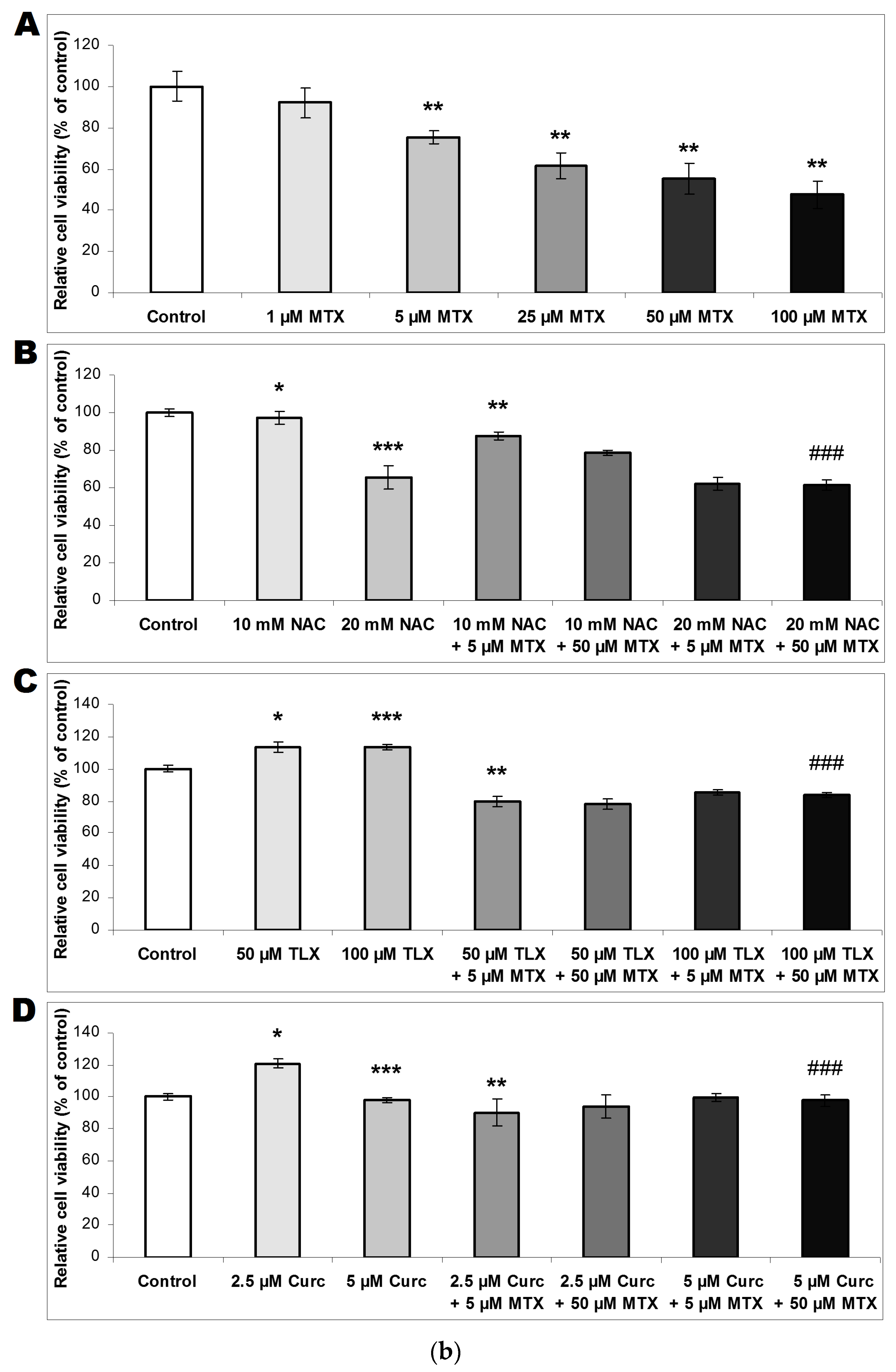Evaluating the Capacity of Several Antioxidants to Attenuate the Renal Toxicity Induced by Methotrexate Therapy †
Abstract
:1. Introduction
2. Experiments
3. Results
4. Conclusions
Author Contributions
Funding
Institutional Review Board Statement
Informed Consent Statement
Data Availability Statement
Conflicts of Interest
Reference
- Bedoui, Y.; Guillot, X.; Sélambarom, J.; Guiraud, P.; Giry, C.; Jaffar-Bandjee, M.C.; Ralandison, S.; Gasque, P. Methotrexate an old drug with new tricks. Int. J. Mol. Sci. 2019, 20, 5023. [Google Scholar] [CrossRef] [PubMed] [Green Version]


Publisher’s Note: MDPI stays neutral with regard to jurisdictional claims in published maps and institutional affiliations. |
© 2020 by the authors. Licensee MDPI, Basel, Switzerland. This article is an open access article distributed under the terms and conditions of the Creative Commons Attribution (CC BY) license (https://creativecommons.org/licenses/by/4.0/).
Share and Cite
Stan, M.S.; Dinischiotu, A. Evaluating the Capacity of Several Antioxidants to Attenuate the Renal Toxicity Induced by Methotrexate Therapy. Med. Sci. Forum 2021, 2, 8. https://doi.org/10.3390/CAHD2020-08597
Stan MS, Dinischiotu A. Evaluating the Capacity of Several Antioxidants to Attenuate the Renal Toxicity Induced by Methotrexate Therapy. Medical Sciences Forum. 2021; 2(1):8. https://doi.org/10.3390/CAHD2020-08597
Chicago/Turabian StyleStan, Miruna S., and Anca Dinischiotu. 2021. "Evaluating the Capacity of Several Antioxidants to Attenuate the Renal Toxicity Induced by Methotrexate Therapy" Medical Sciences Forum 2, no. 1: 8. https://doi.org/10.3390/CAHD2020-08597
APA StyleStan, M. S., & Dinischiotu, A. (2021). Evaluating the Capacity of Several Antioxidants to Attenuate the Renal Toxicity Induced by Methotrexate Therapy. Medical Sciences Forum, 2(1), 8. https://doi.org/10.3390/CAHD2020-08597






